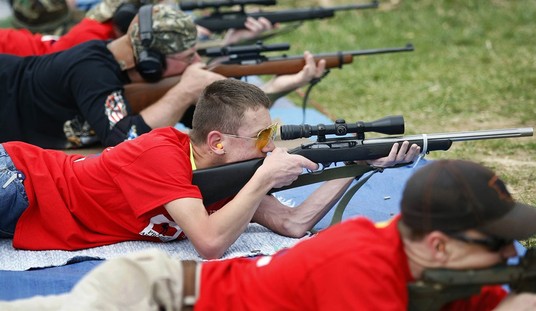MARINE CORPS BASE CAMP PENDLETON, Calif. — Thousands of Americans live and work in countries all over the world. Unfortunately, some of these countries have great civil unrest, and at any time, be places deemed unsafe for Americans to reside. Despite dire situations, Americans can rest assured there is a unit trained and prepared to evacuate them in their time of need.
Non-combatant evacuation operations are one of many standing missions a Marine Expeditionary Unit may be called upon to execute. On Aug. 20, during Certification Exercise, the 15th MEU’s final exercise before deploying in September, Marines and sailors successfully conducted such an operation, proving they are up to the task.
The operation’s main effort was the 15th MEU’s logistics combat element, Combat Logistics Battalion 15. It was responsible for coordinating and leading the safe extraction of the evacuees, but all assets of the Marine Air Ground Task Force had a role. The security element was provided by Marines from Battalion Landing Team 3/5, and Marine Medium Helicopter Squadron 364 provided air transportation as the unit’s ground and aviation combat elements, respectively.
“These Marines are extremely well-trained,” said Lt. Col. John J. Wiener, battalion commander, Combat Logistics Battalion 15, 15th Marine Expeditionary Unit. “This training has fully prepared our unit to execute these types of missions in the real world,” added the 44-year-old native of Cherry Hill, N.J.
The conduct of the exercise brought the MAGTF together as a team, involving more than 100 Marines who safely evacuated the American citizens.
“I’ve seen our strength grow as a unit in the past year,” said Cpl. Lucas G. Sarko, radio operator, Communications Detachment, Combat Logistics Battalion 15, 15th MEU. “We have really improved and are ready for this deployment. I know I am,” added the 20-year-old native of Cleveland.
The initial evacuation began at two hasty sites, one on San Nicholas Island and the other in Victorville, Calif. Hasty sites are the initial evacuation point and are often the most hostile areas. The citizens were evacuated from these two areas and taken to a deliberate site, at Marine Corps Air Station Camp Pendleton, Calif., the halfway point before arriving to a safe haven. At the deliberate site, the citizens are further processed and cleared through the Department of State for travel to the safe haven. A squad of Marines from Lima Company, Battalion Landing Team 3/5, 15th MEU, provided security to ensure the site was safe from potential local threats.
“We are here to provide security for the evacuation of the American citizens,” said Staff Sgt. Gilbert P. Gonzales, platoon sergeant, 2nd platoon, Lima Company, BLT 3/5, 15th MEU. “Our sole mission is to ensure they are evacuated safely,” added the 28-year-old native of Los Angeles.
The 15th MEU successfully completed the training and returned to the USS Peleliu as the American citizens were being prepared to travel to the safe haven. The sailors of the USS Peleliu remained on standby to use the ship as a secondary refuge in the event the shelter was unavailable for the American citizens.
This support included having sailors prepared to search luggage for contraband, allocating berthing spaces for individuals and having states rooms for families. Medical personnel were prepared to assist by treating any injuries. Additionally, extra meals were allocated, and the disbursing office was prepared to securely store any valuables the evacuees may have brought with them.
The unit is embarked on the Peleliu Amphibious Ready Group, which consists of the amphibious assault ship USS Peleliu (LHA 5), the amphibious transport dock ship USS Green Bay (LPD 20) and amphibious dock landing ship USS Rushmore (LSD 47). The unit is scheduled to leave on deployment in September.








Join the conversation as a VIP Member